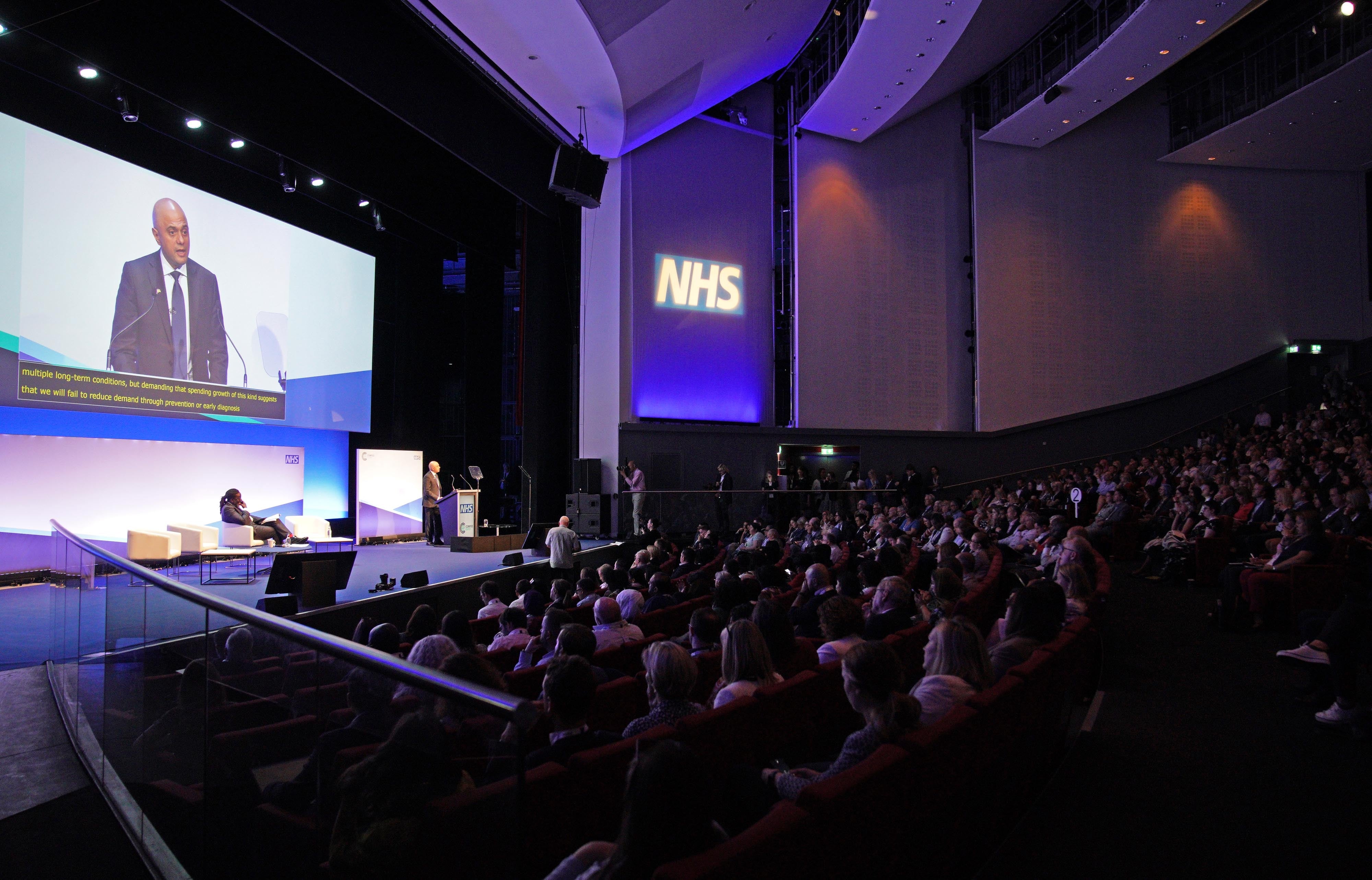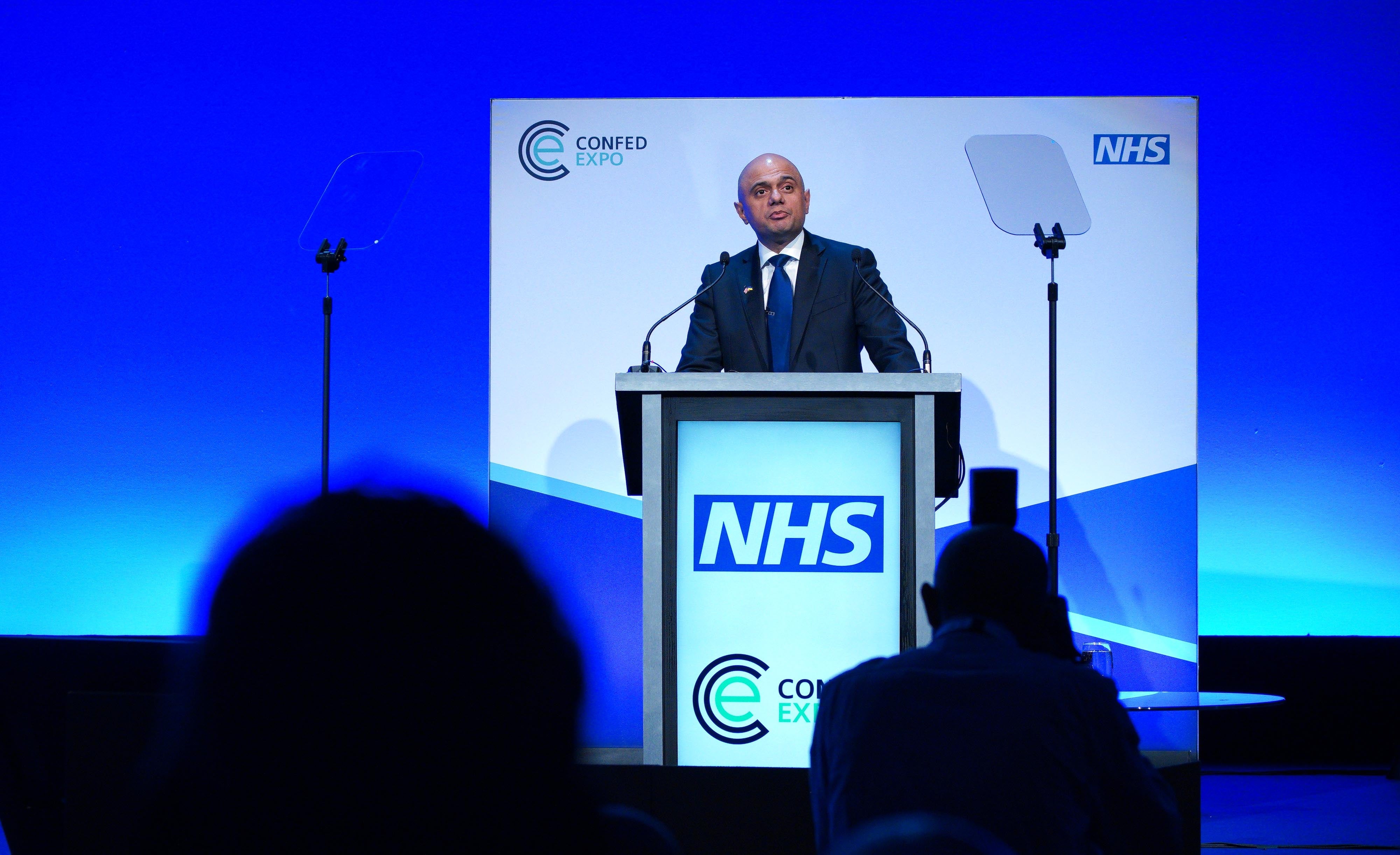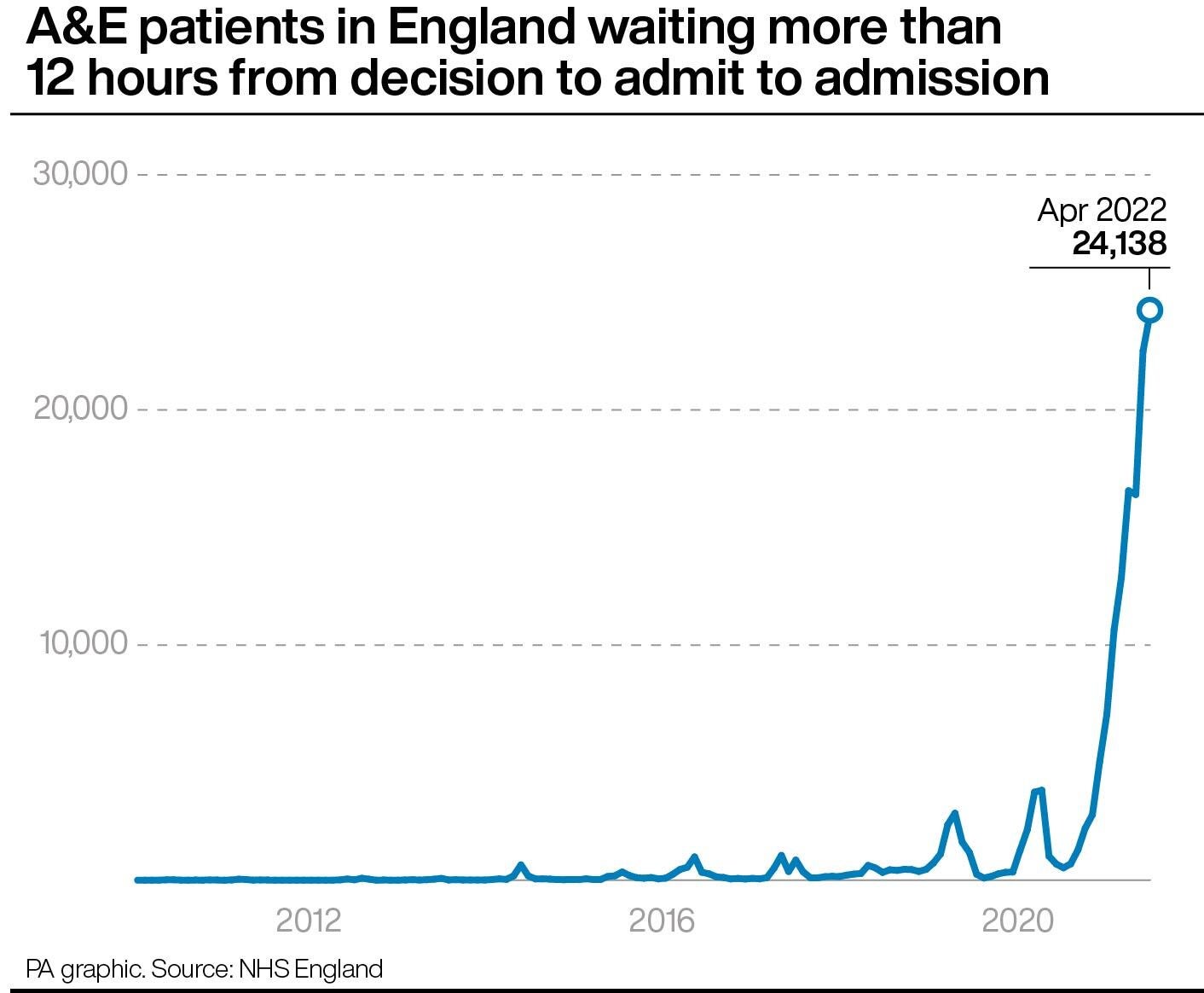
There is “no quick cure” to the problems in A&E, Health Secretary Sajid Javid has said, but he insisted that there would be no more money for the health service in England.
Mr Javid said that he was “horrified” to see the video emerge of a nurse in an A&E telling patients they may be waiting up to 13 hours to see a doctor.
But he told delegates at the NHS ConfedExpo conference in Liverpool that “the answer to all the challenges that we face in healthcare cannot always be more money”.

And the strain in emergency departments was “linked to the pandemic”, he added.
Meanwhile, NHS England chief executive Amanda Pritchard said that emergency care was facing winter pressures in the middle of summer.
And she said that issues facing social care are not likely to be resolved before winter, which is traditionally very busy in A&E departments.
She also raised concerns about a reduction in the number of hospital beds, saying that “we have passed the point at which that efficiency actually becomes inefficient”.
Ms Pritchard also said that “budgets can only ever stretch so far” when addressing concerns about capital funding in the health service which covers upgrading buildings and IT systems.
On emergency care pressures, Mr Javid told delegates: “People stayed away, understandably at the height of the pandemic and many of those people are rightly now coming forward in record numbers and that presents itself in A&E as well as primary care in other places.
“But also the pandemic had an impact on social care, and that’s had an impact on the capacity in the social care system, which means that many hospitals are struggling with delayed discharges and getting people the care packages that they need – that has an impact on the flow through the entire hospital.
“What can we do about it? And I genuinely think we are doing everything that is conceivably possible that we can be doing right now. There is no sort of quick cure to this.”
He added: “Like most of us, I watched that recent video from the Princess Alexandra hospital at the A&E and I watched it with a mixture of a emotions – there was horror of course at the thought it could be me waiting in that A&E, it could be my children, your children.”
On NHS finances, he added: “With money, first of all the funding going into the NHS is right, it’s increasing, it was increasing massively even before the pandemic, with the investment through the long-term plan.
“And because of the pandemic, record amounts of funding was going in.
“The money that’s being raised through the levy, the vast, vast majority of that is going in to the NHS and that’s right, because first thing is the NHS needs more resources.
“And that’s why it’s getting them over the next few years, is getting the extra resources that it needs, including for capital.
“My point about money more generally is that the answer to all the challenges that we face in healthcare cannot always be more money. I think it’s essential that we improve productivity.”
He added: “Growing health spending at double the rate of economic growth over the next decade, as I’ve heard some propose, is neither sustainable, desirable nor necessary.

“I don’t want my children, anyone’s children, to grow up in a country where more than half of public spending is taken up with healthcare at the expense of everything from education to housing.
“That’s not a fair deal for the British people, particularly young people.”
Ms Pritchard also spoke about the pressures facing A&E, saying: “Frankly, the situation we see at the moment in emergency departments and ambulance services is as challenging as any winter before the pandemic.
“But demand isn’t the whole story. The unacceptable rise in 12-hour waits for admission from A&E underlines that the issue is flow.
“You can trace the line from delayed discharges, to A&E crowding, all the way through to slower ambulance response times.
“It’s difficult to see social care capacity being significantly expanded ahead of winter, so the NHS must do everything in its power to tackle this.”
She said that NHS is working on an emergency care strategy which will be published by the autumn.
Meanwhile, on hospital bed numbers, she added: “The NHS has long had one of the lowest bed bases among comparable health systems and in many respects this reflects on our efficiency and our drives to deliver better care in the community… we have passed the point at which that efficiency actually becomes inefficient.
“So the point has come where we need to review how we right-size our capacity across the NHS.”
On efficiency and productivity, she added: “At 2.2%, we have already set very ambitious efficiency targets.

“And because we are the NHS, we have an advantage over many other health systems in meeting them.
“We can move as one in reining in agency and consultancy spend.
“We can negotiate the best rates for the whole service when it comes to new and effective medicines, and access to independent hospitals for tests and treatments.
“And we can use our buying data and power to find and deliver savings on the everyday items that services need, and in how we use our estate.
“But we must be realistic, so far, we have absorbed the current inflation spike, but budgets can only ever stretch so far.”
Matthew Taylor, chief executive of the NHS Confederation, told the conference the combination of the short-term impact of Covid, the medium-term impact of austerity and the long-term failure to address the social determinants of health had caused a “capacity gap” in the NHS.
“That is why, for many of you, no, most of you, managing crisis is an everyday occurrence,” he said.
On funding, he added: “We must learn the lessons of austerity and the ‘feast or famine’ approach to funding. We welcomed last year’s settlement for health and care.
“We may argue with the Secretary of State and Treasury over its adequacy given the impact of inflation, but we can surely agree that it was only the first step back to financial sustainability.”
Meanwhile, Mr Javid and Ms Pritchard both said that the current model of GP care “is not working”.
Mr Javid said he would be setting out a primary care reform plan shortly.







